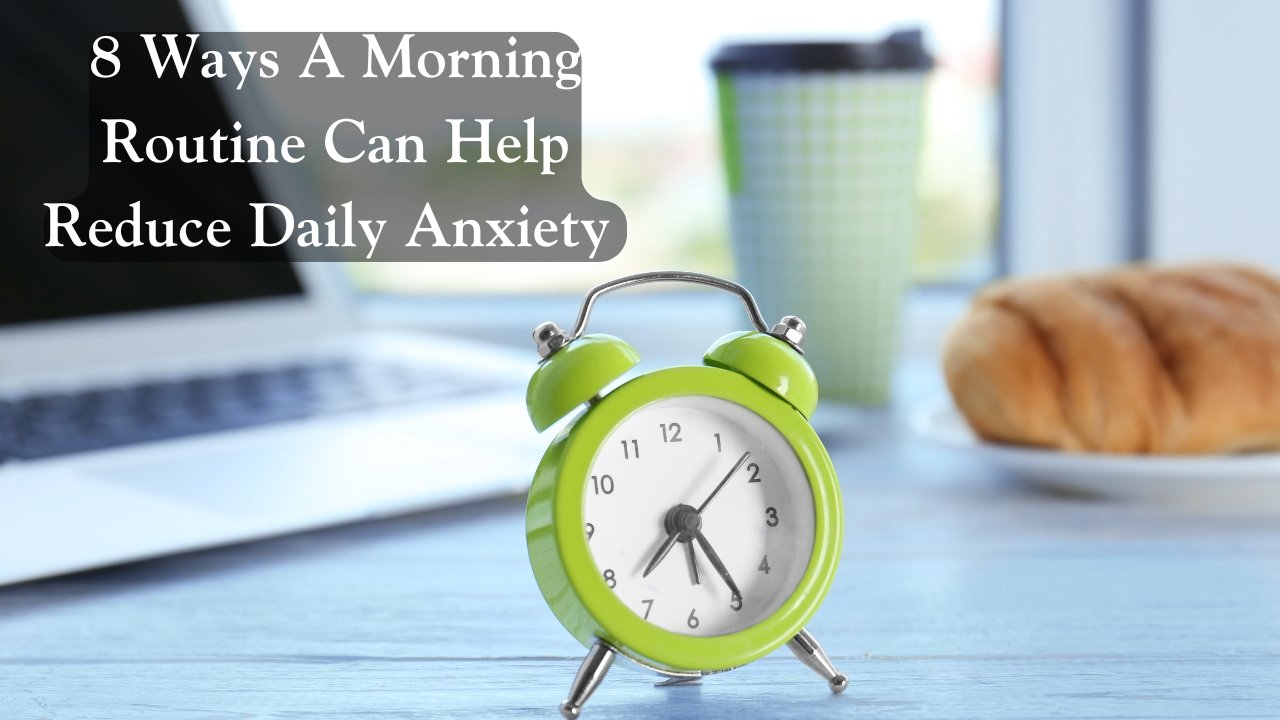

Why Depression Can Feel Worse in the Morning
- No Comments
Mornings can be hard for those with depression. The shift from sleep to wakefulness often brings sadness and tiredness. Knowing why depression worsens in the morning can help you understand your feelings better.
Let’s look at the reasons behind this.
Biological Rhythms and Mood
Our bodies have a natural clock, the circadian rhythm. It controls our sleep-wake cycles, hormone release, and body temperature. Several factors contribute to morning depression:
- Cortisol Levels: Cortisol, the stress hormone, peaks in the morning. For those with depression, this can cause more anxiety or despair.
- Serotonin Production: Sleep produces serotonin, a mood regulator. Poor sleep quality can disrupt serotonin, making mornings worse.
- Melatonin Influence: Melatonin, the sleep hormone, decreases when we wake. This change can make anxiety more noticeable.
Sleep Quality’s Role
Good sleep quality is key to feeling better in the morning. Depression often disrupts sleep, leading to emotional struggles.
- Insomnia: Trouble sleeping can make mornings feel more tired, making sadness worse.
- Sleep Apnea: Sleep apnea can cause poor sleep quality, leading to morning grogginess and irritability.
- Oversleeping: Depression can cause excessive sleep, leading to morning heaviness and depression.

Psychological Factors
The mind also plays a big role in morning depression. Negative thoughts can worsen feelings:
- Ruminating Thoughts: Waking up with negative thoughts can make mornings feel hopeless. The quiet can make these thoughts more prominent.
- Anticipation of Daily Challenges: The day ahead can cause dread and anxiety, more so if your schedule is busy or stressful.
- Social Isolation: Mornings can remind you of loneliness, which is harder if you’re not with family or friends.
Dr. Alex Dimitriu, Psychiatrist & Sleep Medicine Specialist:
“Morning depression often results from disruptions in circadian rhythms and sleep quality. The natural rise in cortisol upon waking can be more pronounced in those with depression, leading to increased feelings of sadness and fatigue.”
Environmental Influences
Your surroundings can also impact your mood in the morning. Environmental factors include:
- Lighting: Natural light can boost mood and energy. Dark or cloudy mornings can make you feel worse.
- Routine: A stable morning routine can help you feel better. Without one, mornings can feel chaotic.
- Distractions: Noise or tension in the morning can negatively affect your mood and prolong anxiety.
Managing Morning Depression
Improving your mood in the morning is possible. Here are some strategies:
- Develop a Consistent Sleep Schedule: Regular sleep times can help regulate your body’s internal clock.
- Morning Light Exposure: Spend time outdoors in sunlight or use a light therapy box, more so in darker months.
- Mindfulness and Meditation: Mindfulness can help you stay present and reduce morning anxiety.
- Create a Morning Routine: Joyful morning rituals can set a positive tone for the day.
Understanding morning depression can make you feel less alone. By considering biological and psychological factors, and using simple strategies, you can improve your mornings and overall well-being.
Strategies to Cope with Morning Depression and Enhance Mood Throughout the Day
Many people feel sad and hopeless, often in the morning. If you’re one of them, know you’re not alone. Mornings can be tough when you’re battling depression.
There are ways to cope with morning depression and boost your mood all day.

Acknowledge Your Feelings
Start by recognizing and accepting your feelings in the morning. It’s normal to wake up feeling down. Acknowledging your emotions can make them feel lighter.
Instead of pushing them away, allow yourself to feel them. This way, you can validate your experiences and manage them better.
Create a Morning Routine
Having a consistent morning routine can greatly improve your mood. It sets a positive tone for the day. Here are some key elements to include:
- Wake Up at the Same Time: Try to get up at the same time every day. This helps regulate your body’s internal clock.
- Hydrate: Start your day with a glass of water. Dehydration can make you feel sluggish.
- Healthy Breakfast: Eat a nutritious breakfast. Foods like oatmeal, yogurt, or fruits can boost your energy and mood.
- Physical Activity: Incorporate light exercises, such as stretching or yoga, to energize your body.
Dr. Judith Orloff, Psychiatrist & Author of ‘The Empath’s Survival Guide’:
“The transition from sleep to wakefulness can be overwhelming, especially for those struggling with depression. Gentle morning rituals like exposure to natural light, deep breathing, and mindful movement can ease this shift and help stabilize mood.”
Get Natural Light
Exposure to natural light is key for regulating your mood. Sunlight releases serotonin, a hormone that makes you feel happy. Here are ways to get sunlight in the morning:
- Open Your Curtains: Let the morning light fill your room.
- Take a Walk Outside: Walk around your neighborhood or sit outside for a few minutes.
- Use a Light Therapy Box: If sunlight is hard to find, consider using specialized light therapy devices.
Practice Mindfulness
Mindfulness is a powerful tool to stay grounded. It helps you focus on the present moment. Here are some mindfulness techniques for the morning:
- Deep Breathing: Spend a few minutes focusing on your breath. Inhale deeply through your nose and exhale through your mouth.
- Meditation: Even just five minutes of meditation can clear your mind and offer clarity.
- Gratitude Journaling: Write down three things you’re grateful for each morning. This practice shifts your focus to the positive aspects of life.
Connect with Others
Feeling isolated can worsen depression. Connecting with loved ones can uplift your spirits. Here are simple ways to reach out:
- Send a Text: A quick “hello” or “how are you?” can start a conversation.
- Have Breakfast Together: If possible, share breakfast with family members or roommates.
- Join a Support Group: Many online communities offer a chance to connect with others facing similar struggles.
Limit Negativity
Engaging with negative content can affect your mood, even in the morning. Here are tips to create a more positive environment:
- Reduce Social Media Use: Limit your time on platforms that make you feel anxious or unhappy.
- Choose Uplifting Media: Listen to podcasts or music that inspire or energize you.
- Set Boundaries: If certain conversations or interactions drain your energy, don’t hesitate to take a step back.

Monitor Your Sleep Patterns
Good sleep is essential for mental health. Poor sleep can worsen depression. Improve your sleep habits with these tips:
- Set a Sleep Schedule: Go to bed at the same time each night and aim for 7-9 hours of sleep.
- Create a Restful Environment: Keep your bedroom dark, cool, and quiet.
- Avoid Screens Before Bed: Limit exposure to screens at least an hour before bedtime.
By implementing these strategies, you can make your mornings brighter. Remember, it’s okay to seek professional help if you’re feeling overwhelmed.
With time, patience, and persistence, you can improve your mood and face each day with hope.
Dr. Michael Breus, Clinical Psychologist & Sleep Expert:
“Quality sleep is essential for emotional resilience. Poor sleep can disrupt serotonin production and deepen morning depression. A consistent bedtime routine and morning sunlight exposure can help regulate mood and energy levels.”
Conclusion: Why Depression Can Feel Worse in the Morning
Understanding why depression can feel worse in the morning is key for those fighting it. Disrupted sleep, hormonal changes, and the stress of a new day play big roles.
Mornings can bring stress and anxiety, making sadness or hopelessness harder to overcome.
But recognizing these patterns is the first step to better mental health. Simple changes can boost your mood all day.
Try a calming morning routine, exercise, or mindfulness. These small steps can make mornings better over time.
Don’t be afraid to ask for help, whether it’s therapy or talking to friends. Sharing your feelings can bring relief and support.
Remember, you deserve to feel better with each new day.
Be patient and kind to yourself as you work through morning depression. Every small victory is a step forward.
With time, mornings can become a chance for renewal, helping you start the day with hope.





Leave A Comment